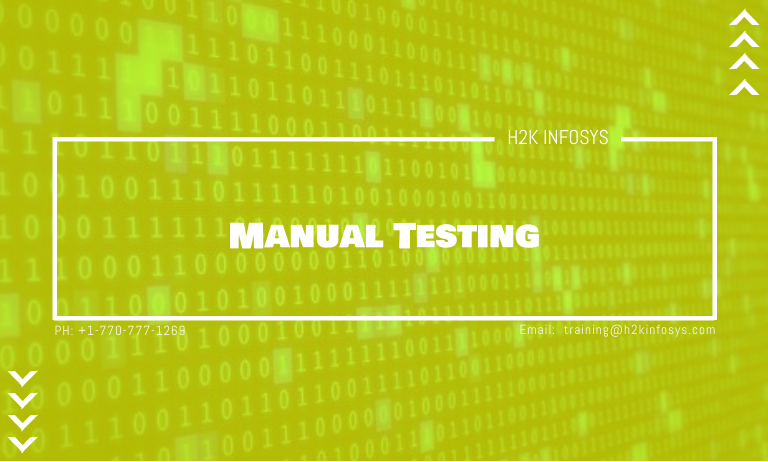Introduction: Why Cyber Security Basics Matter Today
Every click, payment, or login we make online leaves a digital footprint. Unfortunately, hackers are constantly searching for ways to exploit these footprints. Reports suggest that cybercrime could cost the world over $10.5 trillion annually by 2025. In this landscape, learning Cyber Security Basics has become a necessity, not just for IT professionals but for anyone who wants to safeguard personal and organizational data.
For students and professionals, enrolling in Cyber security training and placement programs is the smartest way to build career-ready skills while protecting the digital world.
Understanding Cyber Security Basics
What are Cyber Security Basics?
At its core, Cyber Security Basics refers to the foundational principles of protecting computers, networks, and data from unauthorized access. These basics help learners understand:
- How to identify threats.
- How to secure devices.
- How to create safe digital practices.
By mastering these fundamentals, you prepare yourself for advanced concepts taught in cyber security training courses.
Smart Skills to Learn in Cyber Security
The journey to becoming a cyber security professional begins with strong foundations. These are not just theories you read in a book they are practical, job-ready skills that businesses expect from trained professionals. Below, we break down the most important Cyber Security Basics and smart skills that form the building blocks of a successful career.
1. Network Security Fundamentals
Networks are the backbone of every business. From online banking to cloud platforms, everything relies on secure communication channels. Learning network security is one of the first Cyber Security Basics you need.
What you’ll learn:
- How firewalls filter malicious traffic.
- The difference between intrusion detection (IDS) and intrusion prevention (IPS).
- How VPNs provide secure remote connections.
Practical example: Imagine you work for an e-commerce company. A hacker attempts to inject malicious packets into your payment gateway. With the right network security skills, you can configure firewalls to block traffic and protect customer data.
2. Threat Analysis and Incident Response
Attacks are inevitable; it’s how you respond that makes the difference. This skill is about detecting suspicious activity, minimizing damage, and recovering quickly.
What you’ll learn:
- Monitoring security logs for anomalies.
- Steps of the incident response lifecycle: preparation, identification, containment, eradication, recovery, and lessons learned.
- Forensic analysis of compromised systems.
Practical example: A healthcare system experiences a ransomware attack. With proper incident response skills, you can isolate infected servers, identify the source of the attack, and restore patient records from backups, minimizing downtime and saving lives.
3. Cryptography and Data Protection
Cryptography is the science of securing data, and it’s a key part of Cyber Security Basics. Without encryption, sensitive data like passwords and bank details would be easy targets.
What you’ll learn:
- Symmetric vs. asymmetric encryption methods.
- Hashing algorithms like SHA-256 for data integrity.
- Public Key Infrastructure (PKI) for digital certificates.
Practical example: When you buy something online, your credit card details are encrypted using SSL/TLS protocols. As a cyber security professional, you ensure this encryption works correctly to protect users.
4. Identity and Access Management (IAM)
Unauthorized access is one of the most common security risks. IAM ensures that only the right people access the right resources at the right time.
What you’ll learn:
- Role-based access control (RBAC).
- Multi-factor authentication (MFA).
- Single Sign-On (SSO) technologies.
Practical example: At a financial institution, employees should only access the data required for their job role. IAM skills help you implement least-privilege policies that minimize insider threats.

5. Operating System Security
Hackers often exploit OS vulnerabilities to gain access. Learning to secure different operating systems is another Cyber Security Basics requirement.
What you’ll learn:
- Hardening techniques, like disabling unused ports and services.
- Patch management and automated updates.
- Auditing user activity and permissions.
Practical example: On a company server running Linux, you might configure audit logs to detect unauthorized access attempts, ensuring accountability and compliance.
6. Cloud Security Skills
As organizations rapidly move to the cloud, cloud security is now one of the most in-demand smart skills. Protecting cloud platforms requires an understanding of shared responsibility and secure configurations.
What you’ll learn:
- Security features in AWS, Microsoft Azure, and Google Cloud.
- Identity and access management in the cloud.
- Securing containers and Kubernetes environments.
Practical example: Suppose your company stores client data on AWS. With cloud security skills, you can configure IAM policies, encryption, and monitoring tools like AWS GuardDuty to keep that data safe.
7. Penetration Testing and Ethical Hacking
One of the most exciting areas of cyber security, penetration testing allows you to act like a hacker but legally. It’s about finding weaknesses before attackers do.
What you’ll learn:
- Vulnerability scanning with tools like Nessus.
- Exploitation with Metasploit.
- Web application testing with Burp Suite.
Practical example: A retail company asks you to test its website. By performing a penetration test, you discover an SQL injection vulnerability. Reporting and fixing it ensures the company’s data remains safe from real hackers.
8. Compliance and Risk Management
Security isn’t just about technology, it’s also about following laws and policies. Risk management ensures organizations are prepared for every possibility.
What you’ll learn:
- Mapping company policies to frameworks like GDPR, HIPAA, and PCI-DSS.
- Conducting risk assessments using quantitative and qualitative methods.
- Designing disaster recovery and business continuity plans.
Practical example: A hospital must comply with HIPAA to protect patient health data. With compliance skills, you create policies and monitoring systems to prevent violations and costly fines.
9. Application Security
Applications are common targets for hackers, especially web and mobile apps. Securing them is now a critical part of Cyber Security Basics.
What you’ll learn:
- Secure coding practices.
- Testing for vulnerabilities like SQL injection and cross-site scripting (XSS).
- Using application firewalls.
Practical example: As a security analyst, you work with developers to ensure a new banking app doesn’t expose sensitive data through weak code.
10. Soft Skills for Cyber Security Professionals
Beyond technical expertise, successful cyber security experts must also develop strong communication, problem-solving, and analytical thinking.
What you’ll learn:
- Explaining technical issues in simple terms to non-technical teams.
- Collaborating with Developers, managers, and compliance officers.
- Staying updated with the latest threat intelligence.
Practical example: During a board meeting, you may need to present findings on a data breach. Soft skills help you explain the issue clearly and propose solutions in a way executives can understand.
Why These Smart Skills Matter
Employers hiring through cyber security training and placement programs expect candidates to demonstrate these capabilities from day one. By combining Cyber Security Basics with advanced skills, you show that you can adapt to any challenge, whether it’s defending a network, managing compliance, or responding to active threats.
Real-World Applications of Cyber Security Basics
The beauty of Cyber Security Basics is its universal application. Whether you are securing patient records in healthcare, preventing fraudulent banking transactions, or defending government data, the same fundamental skills apply.
For example:
- Banking and Finance: Detect phishing attempts and ransomware threats.
- Healthcare: Protect electronic health records from breaches.
- E-Commerce: Safeguard customer payment details during transactions.
- Government and Defense: Secure confidential and national data.
Career Opportunities After Learning Cyber Security Basics
Once you’ve mastered Cyber Security Basics, multiple career paths open up:
- Cyber Security Analyst – Monitor and defend systems.
- Network Security Engineer – Build and secure enterprise networks.
- Penetration Tester – Perform ethical hacking.
- Cloud Security Specialist – Protect cloud infrastructures.
- Compliance Officer – Ensure organizations meet global standards.
Structured Cyber security training and job placement programs prepare you for these roles by blending Cyber Security Basics with advanced skills.
Why Choose Cyber Security Training and Placement Programs?
While anyone can start with free resources, structured programs help learners master Cyber Security Basics faster and more effectively. These programs offer:
- Practical labs for hands-on learning.
- Step-by-step guidance from industry experts.
- Placement support with leading companies.
- Preparation for global certifications like Security+ or CEH.
Online Classes for Cyber Security Basics
For students and professionals who prefer flexibility, online classes cyber security programs are ideal. They cover everything from Cyber Security Basics to advanced penetration testing, enabling you to learn at your own pace while still getting practical exposure.
By enrolling in cyber security analyst training online, you get to practice real-world case studies and develop industry-relevant skills.
Step-by-Step Roadmap to Master Cyber Security Basics
- Learn IT and networking fundamentals.
- Enroll in structured cyber security training courses with placement support.
- Practice Cyber Security Basics in labs and simulations.
- Work on projects like phishing simulations or firewall setups.
- Earn global certifications to validate your skills.
- Use placement support to enter your first cyber security role.
Case Study: From Basics to Cyber Security Analyst
A recent learner joined a cyber security course with placement, starting with Cyber Security Basics such as network defense and incident response. Within six months, he secured a job as a Cyber Security Analyst, applying his training directly to real-world systems. This shows how mastering fundamentals can open doors to rewarding careers.
Key Takeaways
- Cyber Security Basics are the foundation of a successful career in IT security.
- Core skills include network defense, threat analysis, cryptography, IAM, and compliance.
- Industries like banking, healthcare, and e-commerce depend on professionals who master these basics.
- Enrolling in cyber security training and placement programs ensures career-ready preparation.
- Flexible options like online classes cyber security make it possible to learn anytime, anywhere.
Conclusion
Cyber security careers begin with strong fundamentals. By mastering Cyber Security Basics and progressing through structured programs like H2K Infosys Cybersecurity training and placement courses, you gain the confidence and expertise needed to thrive in a digital-first world.
Take the first step today, enroll in H2K Infosys’ Cyber security course with placement, and secure your career in the digital age.


























